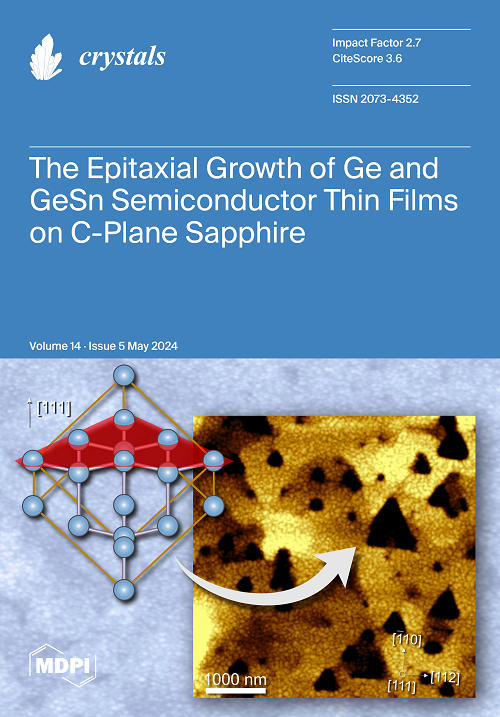利用过渡区细化蛋白质包膜,增强蛋白质晶体学中的直接分相功能
IF 2.4
4区 材料科学
Q2 CRYSTALLOGRAPHY
引用次数: 0
摘要
在蛋白质晶体学中,确定准确的蛋白质包络线对于衍射数据的非初始分相至关重要。在之前的工作中,我们介绍了一种通过在加权平均密度图上寻找最佳截断值来确定蛋白质包络线的方法。在本文中,我们将重点放在确定划分蛋白质和溶剂区域边界的过渡区域上,而不是仅仅依赖于单一的截断值,从而大大推进了我们的研究方法。在这个过渡区域内,我们使用更精细的地图和我们提出的过渡混合输入输出(THIO)算法对蛋白质包络进行了细致的搜索。通过这一改进,即使从随机相开始,我们也能获得精细的蛋白质包络,从而使我们能够确定具有不规则包络的蛋白质结构,并成功地将溶剂含量降低的晶体相化。为了验证我们方法的有效性,我们使用五种蛋白质晶体的真实衍射数据进行了测试,每种晶体的溶剂含量从 60% 到 65% 不等。由于溶剂含量有限,通过传统的直接方法求解这些结构非常困难。通过我们提出的方法得到的平均相位误差约为 30°。重建的模型与蛋白质数据库中的结构相匹配,均方根偏差(r.m.s.d.)约为 1 Å。这些结果有力地证明,将所提出的过渡区域与 THIO 算法结合使用,对构建可靠的蛋白质包膜大有帮助。反过来,这对于溶剂含量较低的蛋白质晶体的直接分相也是不可或缺的。本文章由计算机程序翻译,如有差异,请以英文原文为准。
Refining Protein Envelopes with a Transition Region for Enhanced Direct Phasing in Protein Crystallography
In protein crystallography, the determination of an accurate protein envelope is of paramount importance for ab initio phasing of diffraction data. In our previous work, we introduced an approach to ascertain the protein envelope by seeking an optimal cutoff value on a weighted-average density map. In this paper, we present a significant advancement in our approach by focusing on identifying a transition region that demarcates the boundary between the protein and solvent regions, rather than relying solely on a single cutoff value. Within this transition region, we conducted a meticulous search for the protein envelope using a finer map and our proposed transition hybrid input–output (THIO) algorithm. Through this improvement, we achieved a refined protein envelope even when starting from random phases, enabling us to determine protein structures with irregular envelopes and successfully phase crystals with reduced solvent contents. To validate the efficacy of our method, we conducted tests using real diffraction data from five protein crystals, each containing solvent contents ranging from 60% to 65%. Solving these structures through conventional direct methods proved difficult due to the limited solvent content. The mean phase error obtained through our proposed method was about 30°. The reconstructed model matched with the structure in the protein data bank with a root mean square deviation (r.m.s.d.) of about 1 Å. These results serve as compelling evidence that the utilization of the proposed transition region in conjunction with the THIO algorithm contributes significantly to the construction of a reliable protein envelope. This, in turn, becomes indispensable for the direct phasing of protein crystals with lower solvent contents.
求助全文
通过发布文献求助,成功后即可免费获取论文全文。
去求助
来源期刊

Crystals
CRYSTALLOGRAPHYMATERIALS SCIENCE, MULTIDIS-MATERIALS SCIENCE, MULTIDISCIPLINARY
CiteScore
4.20
自引率
11.10%
发文量
1527
审稿时长
16.12 days
期刊介绍:
Crystals (ISSN 2073-4352) is an open access journal that covers all aspects of crystalline material research. Crystals can act as a reference, and as a publication resource, to the community. It publishes reviews, regular research articles, and short communications. Our aim is to encourage scientists to publish their experimental and theoretical results in as much detail as possible. Therefore, there is no restriction on article length. Full experimental details must be provided to enable the results to be reproduced. Crystals provides a forum for the advancement of our understanding of the nucleation, growth, processing, and characterization of crystalline materials. Their mechanical, chemical, electronic, magnetic, and optical properties, and their diverse applications, are all considered to be of importance.
 求助内容:
求助内容: 应助结果提醒方式:
应助结果提醒方式:


